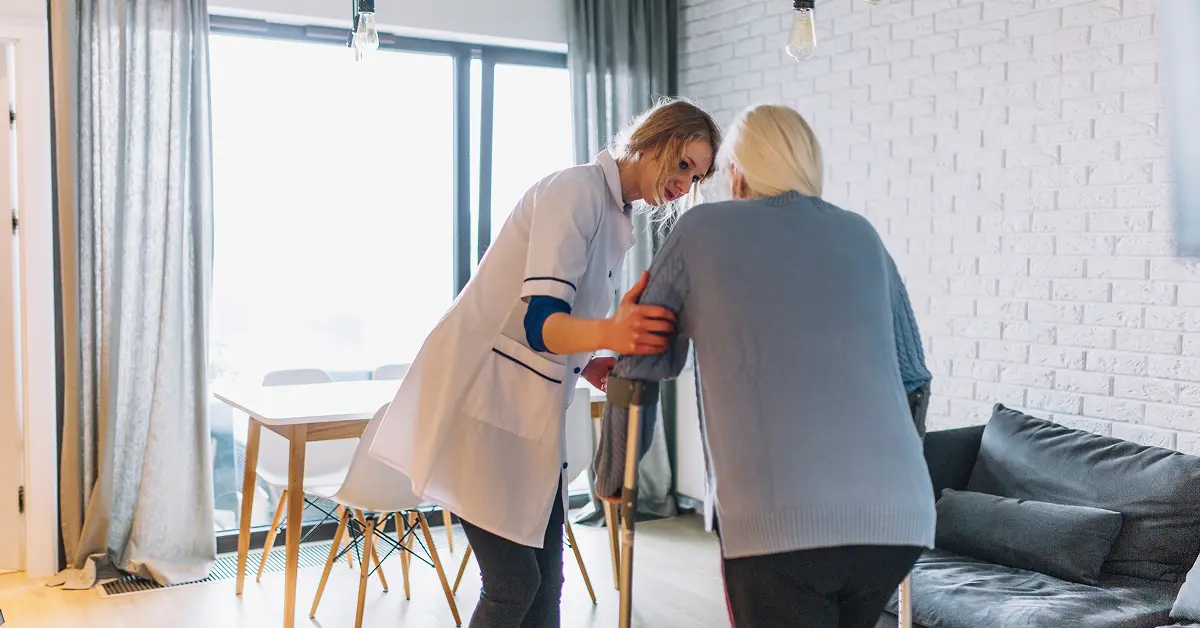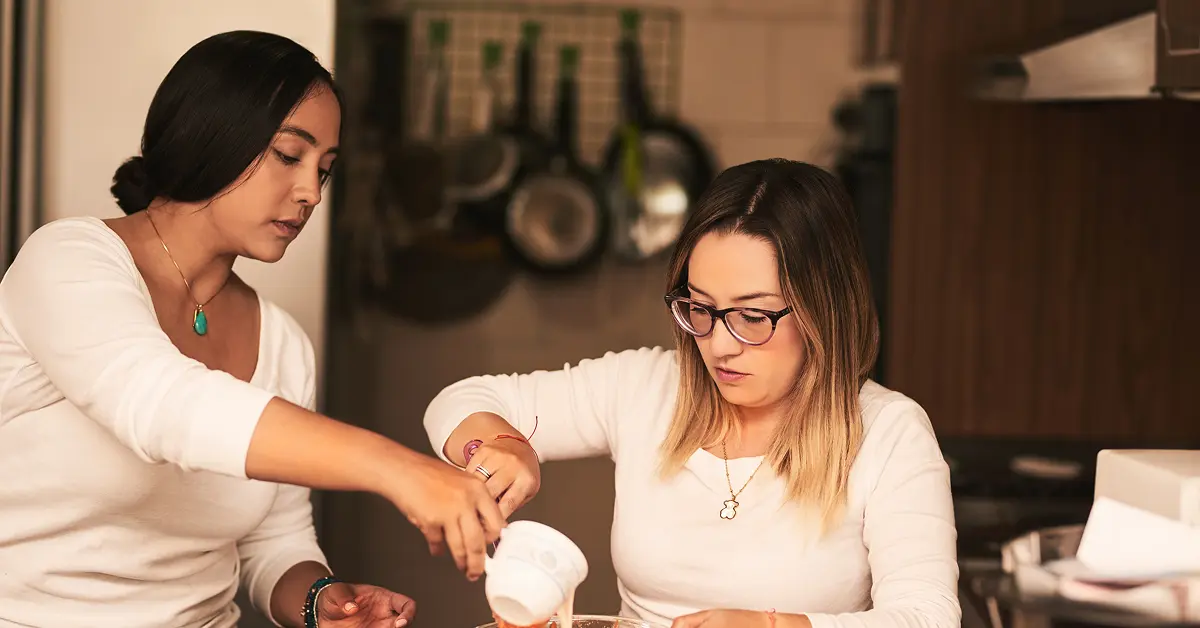When it comes to caring for a loved one at home—especially Elderly Care Services patients recovering from surgery, or children with special needs—hiring the right in-home caregiver is one of the most important decisions you’ll make. In India, the demand for trusted home caregivers is growing fast, especially in cities like Mumbai, Delhi, Bengaluru, and Hyderabad where families seek quality care with a personal touch.
But how do you know which caregiver is right for your home? Beyond qualifications and experience, there are key human qualities that define a truly trusted in-home caregiver.
In this blog, we’ll explore the top traits and values that the best caregivers bring to the table—helping families feel secure, supported, and stress-free.
Empathy: The Heart of Caregiving
Empathy is the ability to truly understand and share the feelings of another. A trusted in-home caregiver does not just follow a checklist—they connect emotionally with the person they are caring for.
Whether it’s a senior who feels lonely or a bedridden patient recovering from surgery, an empathetic caregiver brings comfort just by being present. They offer not just physical support, but emotional reassurance, which is vital for healing and happiness.
Example: When a caregiver remembers how a senior likes their tea or listens patiently to a story they’ve heard before, that’s empathy in action.
Reliability and Punctuality
A trusted caregiver is someone your family can count on—every single day. This means arriving on time, completing tasks without reminders, and staying committed even during emergencies.
In India, where many working professionals rely on home caregivers for their elderly parents while they are at work, dependability becomes non-negotiable.
You shouldn’t have to worry about sudden leaves or late arrivals. Consistent presence is a sign of professionalism and respect for your time and needs.
Patience and Calmness Under Pressure
Caregiving is not always easy. There will be moments of frustration—like helping someone who resists medication or gets irritated due to pain or confusion. In such situations, patience is key.
A good caregiver never loses their temper or raises their voice. Instead, they respond with calm energy and problem-solving skills.
This is especially important while caring for dementia patients or individuals with limited mobility who require repeated assistance.
Proper Training and Skillset
While emotional intelligence is critical, practical training is equally important. A reliable in-home caregiver should have the right qualifications and certifications depending on the patient’s condition.
They should know:
- Basic first aid and CPR
- Medication administration
- Hygiene and mobility support
- Physiotherapy support (if needed)
- How to use medical equipment (wheelchairs, walkers, oxygen concentrators)
In India, many agencies provide GDA (General Duty Assistant) certified caregivers. Always check for relevant training and verify credentials.
Excellent Communication Skills
Whether it’s updating you on your parent’s blood pressure readings or calmly explaining something to a confused patient, communication is everything in home care.
A trusted caregiver knows how to:
- Communicate clearly with family members
- Report changes in health or behavior
- Understand and respond to the needs of the person they are caring for
They should also speak your preferred language fluently, whether that’s Hindi, English, Tamil, Bengali, or any other regional tongue.
Respect for Privacy and Boundaries
Caregivers work within the private space of your home, often helping with intimate tasks like bathing, dressing, or feeding. That’s why it’s vital they maintain discretion and respect boundaries.
A professional caregiver:
- Knocks before entering a room
- Keeps personal information confidential
- Avoids gossip or prying
- Treats your home and belongings with respect
Flexibility and Adaptability
Every family is different, and every patient’s needs may change day by day. A great in-home caregiver adapts without complaints—adjusting schedules, routines, and techniques as necessary.
For example, if your elderly parent has an unexpected health complication, the caregiver should be willing to shift their approach—perhaps helping with extra visits to the doctor or changing the meal plan.
Physical Strength and Stamina
Depending on the care recipient’s condition, physical effort might be required—lifting, helping with movement, supporting mobility, or maintaining hygiene.
Trusted caregivers maintain their own physical fitness so they can safely handle tasks like:
- Helping someone in and out of bed
- Pushing a wheelchair
- Carrying light medical equipment
- Assisting in bathing or toileting
Positive Attitude and Emotional Support
Healing happens faster in a cheerful environment. A caregiver who brings positivity, a smile, and a "can-do" spirit can uplift the whole household.
This is especially helpful for senior citizens who may feel burdened or depressed due to their age or illness. A warm, engaging caregiver becomes more than a helper—they become a companion and friend.
Cultural Sensitivity and Respect
In Indian homes, traditions and religious customs matter deeply—whether it’s offering aarti in the morning, following a vegetarian kitchen, or observing fasts on certain days.
A culturally sensitive caregiver respects these practices. They understand dietary preferences, dress codes, gender norms, and household rituals.
This alignment helps the caregiver blend into your home without causing discomfort or misunderstandings.
Final Thoughts
Choosing an in-home caregiver is not just about hiring help—it’s about welcoming someone into your private world to take care of the people you love the most. That’s why trust is everything.
By looking for qualities like empathy, reliability, patience, professionalism, and respect, you can find a caregiver who not only supports day-to-day tasks but also enhances the emotional well-being of your family.
Whether you're in a metro city or a small town in India, take the time to interview, observe, and choose someone who fits your family’s unique needs and values. When you find the right person, the peace of mind is truly priceless.
Are you searching for a reliable caregiver for your loved one at home? Look for certified professionals with the traits listed above. Many home care services in India now offer free consultations and trial sessions—take advantage of them to find your perfect match.
If you’d like help with evaluating caregiver options, feel free to reach out for a checklist or personalized guidance. Because your loved one deserves the best care—right from the heart.
Contents
- Empathy: The Heart of Caregiving
- Reliability and Punctuality
- Patience and Calmness Under Pressure
- Proper Training and Skillset
- Excellent Communication Skills
- Respect for Privacy and Boundaries
- Flexibility and Adaptability
- Physical Strength and Stamina
- Positive Attitude and Emotional Support
- Cultural Sensitivity and Respect
- Final Thoughts
Our 24*7 services
Latest Posts
- What Is Respite Care and Why Is It Important
- Affordable home care for senior citizens in India
- Caring for Seniors with Dementia or Alzheimer's at Home
- Senior Caregiving A Guide for Every Family
- How to Write a Caregiver Resume That Gets You Hired
- How Care After Hospital Discharge Speeds Up Recovery at Home
- How to Get Home Health Care for Seniors Through Medicare
- What Does a Senior Citizen Caregiver Really Do at Home
- How to Care for Elderly Parents with Alzheimer’s or Dementia
- How to Get 24-Hour Care for Seniors at Home



